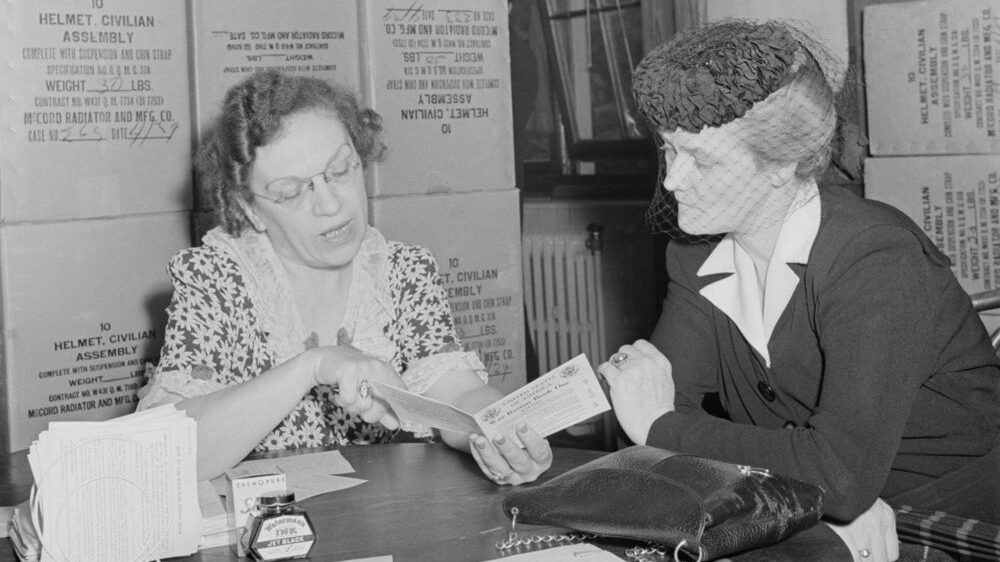
Sugar rationing applicant issued her ration card in May 1942.
Many unique measures have been proposed in recent months in the name of protecting our planet, including shifting to a more bug-based diet or, taking notes from much of the world’s response to COVID, imposing “climate lockdowns.” Scientists from the University of Leeds, however, suggest the answer can be found even further back than 2020 and argue that political leaders should consider “World War II-style rationing.”
The authors of a new paper published in Ethics, Policy & Environment say that policymakers (and, “ultimately the general voting public”) should take “more seriously” the prospect of rationing certain goods to help save the planet. These could include food (“meat in particular”), petrol, aviation, and even clothes and household energy. (Some fear we are already moving towards the effective implementation of the latter, with heavily-promoted smart meter devices allowing providers to charge more for energy consumption at peak times of the day.) The Leeds academics suggest that Britons could use a digital “carbon card” to spend—but not exceed—their “carbon allowance.”
Their proposal for a wider discussion on climate rationing is “modest,” the authors insist; after all, rationing has historically (that is, in different contexts) been “accepted, even welcomed, or demanded.” Rationing, they add, “could be compared to any number of policies, such as investment in alternative energy sources or better transport policy.” In some cases, it’s better; rationing is, for example, “fairer than taxes” on, say, carbon emissions, especially if it was based on their “narrower, egalitarian conception” of the measure which would propose a “basic minimum for all.”
Whether people like it or not, we are told the country may soon have no choice but to impose climate rationing. The authors write:
Current failures to phase out fossil fuels mean that future governments may have to take rapid action to reduce emissions if and when they decide to do so. As governments continue to put off significant action until ‘tomorrow,’ it is likely that, by the time governments decide to take significant action, we will need to reduce emissions urgently. Indeed … we are probably already at that point.
To not take their proposals seriously, the authors add, could be “catastrophic.”
They, being Dr. Nathan Wood, Dr. Rob Lawlor, and Dr. Josie Freear, accept that the public would need to be brought around to accepting rationing, however “modest” they believe the proposal to be. The measure, they add, would rely on “a public that was willing—or could be persuaded—to support their government’s efforts to mitigate climate change.” A “public information campaign” would apparently sort this; the idea not being without precedent, given recent leaks of WhatsApp messages sent by then-Health Secretary Matt Hancock during the COVID era showing he wanted to “frighten the pants off everyone” about the virus to ensure lockdown compliance.
Members of the public would be ensured that “we would not be introducing rationing-in-the-face-of-abundance.” Elsewhere, however, the authors quote a reviewer of the paper who highlighted that “rationing would likely involve the rationing of some particular goods even though there is not a scarcity of those particular goods” (emphasis added). This apparent discrepancy does not stop the authors from concluding that “rationing could play an important role in a pluralistic response to climate change.”
Those who can always be bet on for coming out against such radical measures have responded critically to the paper, with former UKIP leader Nigel Farage criticising the “crackpot ideas,” imagining that they “will soon be mainstream,” and author and clinical psychologist Jordan Peterson teasing: “Just try it and see what happens.” Little, however, beyond some minor reporting, has been made of the story elsewhere. The European Conservative contacted the government for its thoughts on the proposals but received no response.
